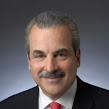Leadership is often associated with bold confidence and charisma, but many great leaders are deep thinkers, soft-spoken and shy. "Don't think of introversion as something that needs to be cured,” says Cain. Introverts make up about one third of the population, and Cain maintains that asking introverts to act like extroverts is a serious waste of talent and energy. Cain says illuminating the power of quietude will not only free introverts to be themselves, but will also contribute to positive advancements in leadership, parenting and the workforce.
Cain’s teaching changes how society sees introverts and how they see themselves. Cain started the Quiet Movement with her bestsellers “Quiet Power: The Secret Strengths of Introverts,” and “Quiet: The Power of Introverts in A World That Can’t Stop Talking.” Her most recent book is “Bittersweet: How Sorrow and Longing Make Us Whole.”
Cain was in conversation with Dr. Marc Brackett. Dr. Brackett is a professor in Yale University’s Child Study Center and founding director of the Yale Center for Emotional Intelligence.
TAKE-AWAYS
John Mensik Glenbard North Principal hosted the noon event and shared the following takeaway:“It was very insightful listening to the profound conversion between Susan Cain and Dr. Mark Brackett. Their perspective on the power and strengths of introverts provided me with a greater understanding of the struggles some teens have in an increasingly extroverted world. They encouraged caregivers to see the child in front of them, as he/she is with all the gifts they were given. Each child is unique and needs to be celebrated and acknowledged for their special talents and contributions.
As Cain affirms-don't think of introversion as something that needs to be cured. Everyone shines, given the right lighting”
“Susan Cain and Bruce Feiler provided wisdom for caregivers to best equip their introverts with the skills needed to flourish in an extroverted culture.
Help them figure out their core passions, so they can build mastery which is much more important than self-esteem. With mastery, they will find connection.
Give your introverted child a ‘longer runway’ that they can take off from. They will get there if we honor their inner temperament and go outward from there. Parents and teachers need to be cautious in their feedback, with less judgement, to lay the framework and appreciation for who the child truly is. This will go a long way as we celebrate and encourage their gifts and the richness inside their minds, helping bring their extraordinary talents and abilities to the world".
RESOURCES
Q and A from the GPS program HERE
Susan Cain's TEDTalk 2012 HERE
Susan Cain and Min Kym: The hidden power of sad songs and rainy days TEDSummit 2019 HERE
Susan Cain's web site HERE
Susan Cain's blog HERE
PODCAST Quiet: The Power of Introverts with Susan Cain HERE
The Quiet Manifesto
- There is a word for “people who are in their heads too much”—thinkers.
- Solitude is a catalyst for innovation.
- The next generation of quiet kids can and must be raised to know their own strengths.
- Sometimes it helps to be a pretend-extrovert. There is always time to be quiet later.
- But in the long run, staying true to your temperament is the key to finding work you love and work that matters.
- One genuine relationship is worth a fistful of business cards.
- It’s okay to cross the street to avoid making small talk.
- “Quiet leadership” is not an oxymoron.
- Love is essential; gregariousness is optional.
- “In a gentle way, you can shake the world.” – Mahatma Gandhi
























